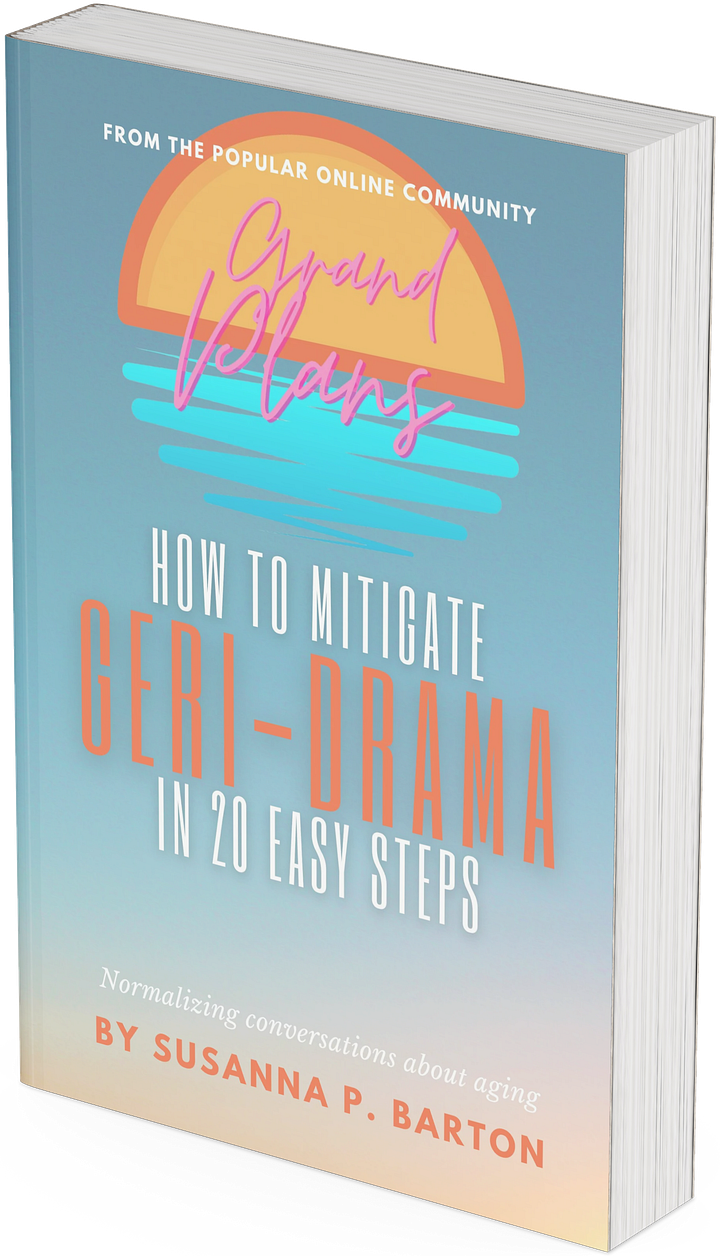Grand Plans: March 13, 2025
A semi-monthly newsletter from Grand Plans designed to normalize and celebrate our glorious geri-destiny through information, stories, real talk conversation, smart planning and shared experience.
Things I’m prattling on about today
Hi, Hon. Sweetheart, today we’re going to talk briefly about elderspeak and why it’s ageist and how you shouldn’t do it. OK, Deary?
The term elderspeak has come up over and over again in my Gerontology master’s studies at the University of North Carolina Greensboro. It is defined as “a modified form of speech used by younger adults when communicating with older adults. It is characterized by simplified vocabulary and sentence structure, slower speech, exaggerated intonation, and the use of overly-endearing terms like "sweetie" or "dear" Elderspeak often stems from stereotypes about older adults having reduced cognitive abilities and can be perceived as patronizing or disrespectful.”
Just the other night, some girlfriends and I went to a bougie new restaurant to celebrate a 50-something birthday and our much younger waitress kept calling us “Love.” It struck all of us hotties the same way: noticeably ick. So, we unpacked it a little over margaritas. We have peer group friends who use the term “Love” to punctuate a soothing comment or to show comfort. But when it comes from someone who is obviously younger — and cuter! — it hits different, as the saying goes.
All of the Gerontology peeps agree that elderspeak is ageist and demonstrates implicit bias against aging. It also impacts how older patients respond in a healthcare setting, how treatment is administered and how older adults thrive in social settings. I get it! And I also think I have been an elder-speaker many times in life before thinking about how hurtful it can be.
My missteps began as a child communicating with my great grandmother, Pennye, pictured above in her Easter finery. Mama Pennye lost her hearing as a young adult and for as long as I knew her, she wore a HUGE shoebox-size hearing aid receiver around her neck. Having a conversation with Mama Pennye involved screaming into her bosoms so she could hear what you were carrying on about. Was that ageist? Or practical? I don’t know, but I think that screaming carried over to the way I spoke with other older adults in my life. I think I got the sense older adults couldn’t hear well. I continued this practice until only recently, when my Gerontology studies underscored my shortcomings in this realm of communication. Anyway, we learn new things every day.
So the next time you call someone who’s older than you are Honey or Sweetheart or You A-hole, lol, consider whether you would like someone calling you that or not. Ageism is real and you don’t want to be the jerk who embraces it.
News you can use
Here’s a short video on elderspeak and addressing older adults:
In this article from ElderCare Matters, some of consequences of elderspeak include:
Depression
Resentment
Low self-esteem
Embarrassment
Loneliness
On another note, know the right way to address older adults. Here’s an article from the National Institute on Aging about avoiding ageism in writing. Basically, the only acceptable term is “older adult” or to describe the person or group of people by their actual age, a 60-year-old woman or adults aged 65-plus. Do not use: old person, senior citizen, elderly, senile, old coot, geezer or the like. Just don’t.
Shelf life
Coming soon! And until then you can still purchase one of these bad boys on Amazon or at your local bookstores.


Grand Plans the OG and the Grand Planner can help walk you through all the great ways to talk to your friends and family about your plans for the second half of life!
Some golden gedunk and goods
Get yourself another few copies of Grand Plans: How to Mitigate Geri-Drama in 20 Easy Steps and the Grand Planner for all the people who like getting gifts in your life! Visit www.mygrandplans.com for links to purchase on Amazon.
And… Check out our Grand Plans merch in our Etsy storefront.











